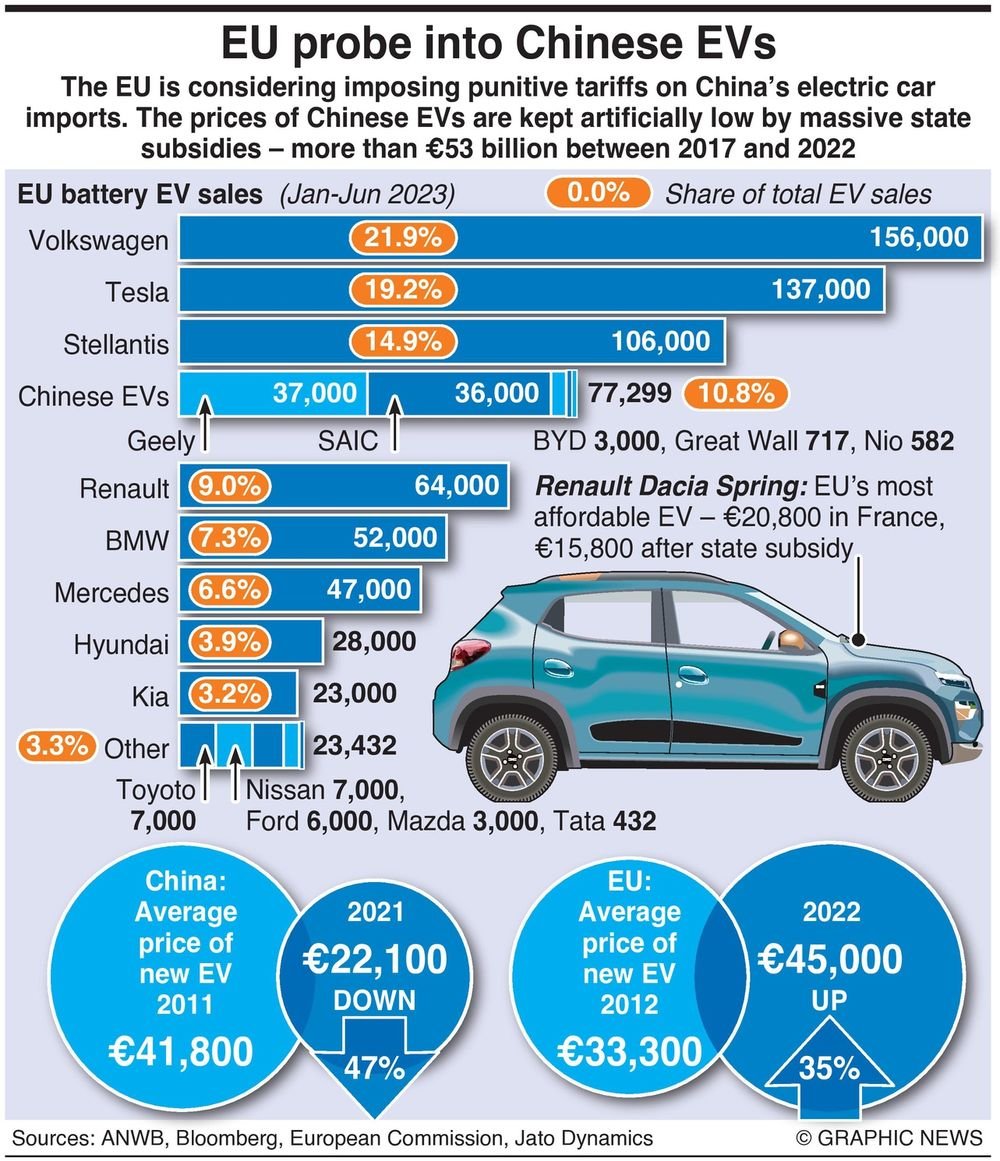Negotiating Tariffs: Switzerland And China's Call For Dialogue

Table of Contents
Switzerland's Trade Relations with China: A Complex Landscape
Switzerland and China enjoy a complex and interwoven economic relationship. However, the imposition of tariffs has created significant challenges. Understanding the intricacies of this relationship is crucial for successfully negotiating tariffs.
Swiss Exports to China: A Delicate Balance
Switzerland's exports to China are heavily concentrated in high-value sectors highly sensitive to tariff changes. These include pharmaceuticals, precision instruments, and luxury goods, particularly watches. Tariffs directly impact the competitiveness and profitability of these crucial export sectors.
- Pharmaceuticals: Increased tariffs on Swiss-made pharmaceuticals have led to price increases in the Chinese market, impacting both Swiss pharmaceutical companies and Chinese consumers.
- Precision Instruments: The imposition of tariffs on high-precision instruments used in various industries has hampered the growth of Swiss exports in this vital sector, potentially leading to job losses in Switzerland.
- Watches: Swiss watch exports, a cornerstone of the Swiss economy, have experienced a significant downturn following the introduction of specific tariffs. For example, Swiss watch exports decreased by 15% after the implementation of Tariff X in 2022. This demonstrates the vulnerability of specific Swiss industries to tariff changes.
Existing trade agreements and frameworks, such as the WTO agreements, provide a basis for resolving disputes, but their effectiveness often depends on the willingness of both parties to engage in constructive dialogue.
Chinese Investments in Switzerland: A Mutually Beneficial Partnership?
China's foreign direct investment (FDI) in Switzerland has steadily increased in recent years, spanning various sectors, including finance, real estate, and technology. However, escalating tariff disputes could significantly undermine this investment trend.
- Financial Services: Chinese investment in Swiss banks and financial institutions could be negatively impacted by increased trade tensions, creating uncertainty in the market.
- Real Estate: Chinese investment in Swiss real estate might slow down if the overall economic climate deteriorates due to protracted tariff disputes.
- Technology: Chinese companies seeking access to Swiss technological expertise might reconsider their investments if facing higher import costs due to tariffs.
The economic interdependence between Switzerland and China underscores the need for cooperative strategies in managing tariff disputes to avoid mutually harmful consequences.
China's Perspective on Tariff Negotiations with Switzerland
Understanding China's broader trade policy and its specific interests in Switzerland is essential for effective tariff negotiations.
China's Trade Policy and its Global Impact
China's trade policy, shaped by initiatives like "Made in China 2025" and the Belt and Road Initiative, aims to enhance its global economic influence. Its approach to tariff negotiations often reflects strategic considerations, aiming to secure access to key markets and technologies.
- Made in China 2025: This initiative focuses on upgrading China's manufacturing capabilities, potentially leading to increased competition and trade friction with countries like Switzerland.
- Belt and Road Initiative: This ambitious infrastructure project aims to connect China with numerous countries across Asia, Europe, and Africa. While seemingly unrelated to Swiss-Chinese trade, it reflects China’s broader geopolitical strategy and its approach to global economic relations.
Engaging in tariff negotiations with Switzerland allows China to showcase its commitment to fair trade while securing access to Swiss expertise and markets.
China's Economic Interests in Switzerland
China has several key economic interests in Switzerland, including access to Swiss technology, financial services, and a stable investment environment. These interests are directly impacted by tariff decisions.
- Access to Swiss Technology: China seeks access to Swiss precision engineering and pharmaceutical technologies to support its own industrial development. Tariffs could limit this access.
- Financial Markets: Switzerland's robust financial sector is attractive to Chinese investors. Tariff disputes could create uncertainty and deter investment.
- Stable Investment Environment: Switzerland's reputation for political and economic stability is a major draw for foreign investment. Unresolved tariff conflicts could damage this reputation.
Maintaining a stable and predictable trading environment is in the mutual interest of both countries.
The Importance of Dialogue and Diplomacy in Resolving Tariff Disputes
Resolving tariff disputes effectively requires a commitment to dialogue and diplomacy, utilizing both bilateral and multilateral mechanisms.
The Role of International Organizations
The World Trade Organization (WTO) offers a crucial framework for resolving trade disputes. Its dispute settlement mechanisms provide a structured process for addressing tariff disagreements.
- WTO Dispute Settlement Body: This body can be invoked to mediate disputes, offering a neutral platform for both Switzerland and China to present their cases and seek a resolution.
- Panel Reports and Appellate Body Rulings: These provide legally binding decisions that can guide both countries in reaching a mutually acceptable agreement.
Adherence to international trade rules and regulations is fundamental for maintaining a fair and predictable global trading system.
The Benefits of Bilateral Negotiations
Direct dialogue and negotiations between Switzerland and China are essential for finding flexible and tailored solutions.
- Flexibility: Bilateral negotiations allow for greater flexibility in exploring solutions beyond the rigid framework of international trade rules.
- Confidentiality: Sensitive information can be shared and discussed without public scrutiny, fostering trust and facilitating compromise.
- Speed: Bilateral negotiations can often lead to quicker resolutions than multilateral processes.
Compromise and collaboration are key to finding mutually beneficial outcomes in bilateral negotiations, fostering stronger economic ties between Switzerland and China.
Conclusion: The Path Forward for Negotiating Tariffs Between Switzerland and China
Successfully negotiating tariffs between Switzerland and China requires a commitment to open communication, mutual understanding, and a willingness to compromise. Both countries share significant economic interests that are intertwined and vulnerable to trade disruptions caused by unresolved tariff disputes. Effectively negotiating tariffs is not merely about lowering duties; it’s about establishing a stable and predictable trading relationship beneficial to both nations. Utilizing both multilateral frameworks, such as the WTO, and bilateral negotiations is crucial for achieving a sustainable resolution. To learn more about the ongoing negotiations and their impact, follow updates from the WTO and Swiss-Chinese trade organizations. Stay informed on the progress of negotiating tariffs between Switzerland and China by following [link to relevant news source or organization].

Featured Posts
-
 Maybank Fuels Economic Growth With 545 Million Investment
May 21, 2025
Maybank Fuels Economic Growth With 545 Million Investment
May 21, 2025 -
 North Carolina Report May 9 2025 Key Events And Developments
May 21, 2025
North Carolina Report May 9 2025 Key Events And Developments
May 21, 2025 -
 Sejarah 10 Tahun Terakhir Premier League Siapa Saja Juaranya
May 21, 2025
Sejarah 10 Tahun Terakhir Premier League Siapa Saja Juaranya
May 21, 2025 -
 The Gretzky Trump Connection A Critical Analysis Of Its Effects On Public Perception
May 21, 2025
The Gretzky Trump Connection A Critical Analysis Of Its Effects On Public Perception
May 21, 2025 -
 Complete Guide Nyt Mini Crossword Answers March 13 2025
May 21, 2025
Complete Guide Nyt Mini Crossword Answers March 13 2025
May 21, 2025
